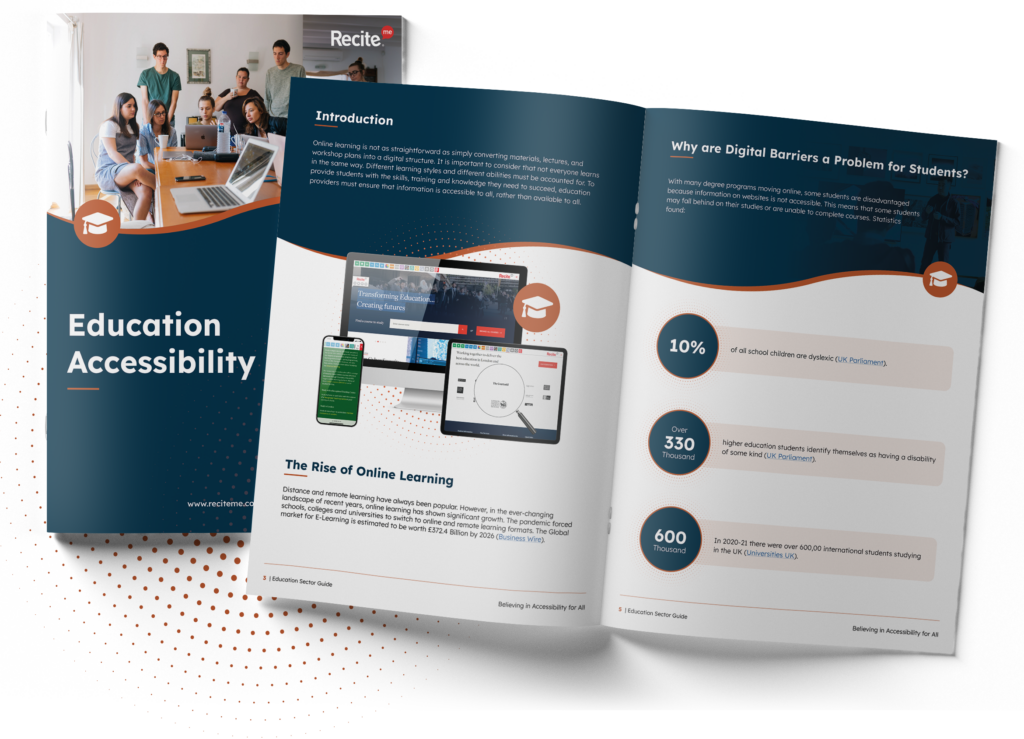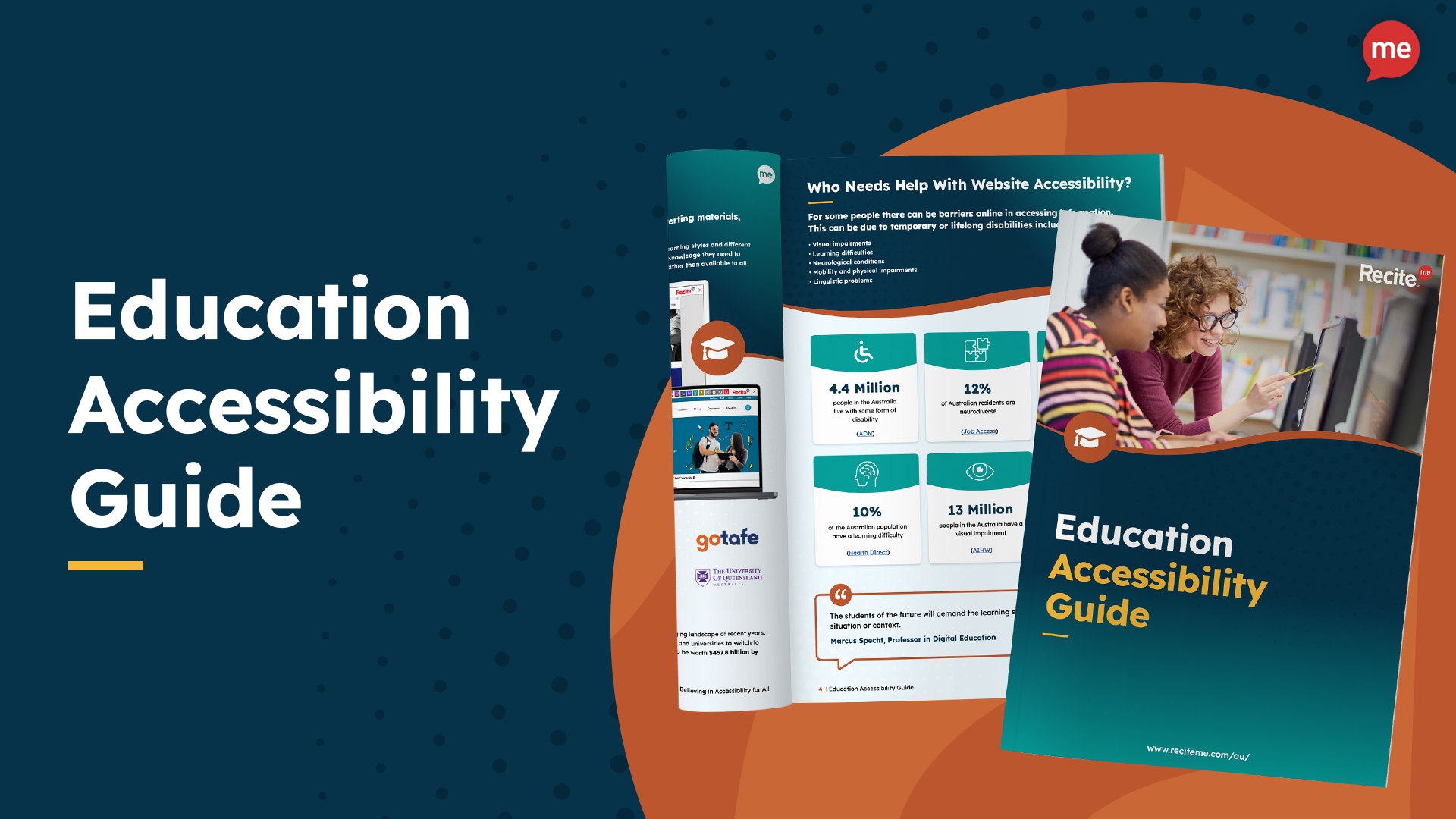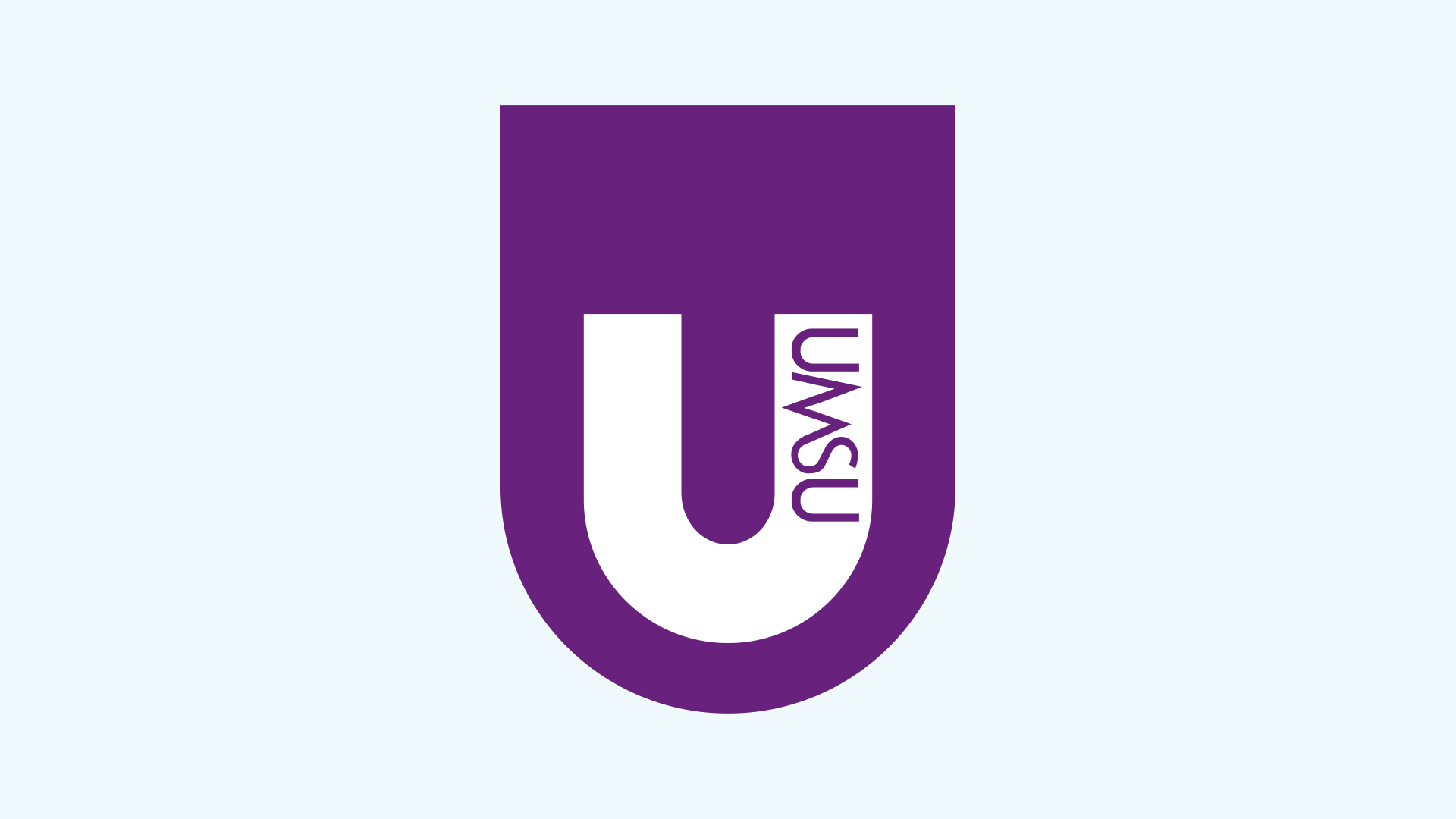Get Your Free Education Accessibility Guide
Download NowInstilling inclusive practices in education helps set the foundation for equality in the workplace and other facets of everyday life. A large part of inclusivity is making reasonable adjustments to your institution’s physical and digital spaces for those who need it, including the 780 million people with dyslexia worldwide.
Imagine being a bright, capable student but struggling with tasks like reading a passage or completing an essay in the allocated time. Without the necessary help, you can quickly fall behind your peers, starting your career two steps behind everyone else. However, if universities and schools are willing to make just a few small adjustments to their practices and approach, these students can thrive. But, what kind of accommodations exactly? Let’s find out.
What are ‘reasonable’ Adjustments?
A ‘reasonable’ adjustment is a change made to an institution’s physical or digital environment in order to accommodate a student’s specific needs. The aim of making reasonable adjustments is to facilitate a student’s participation in the education system, such that they are not disadvantaged in any way. Think of it as levelling the playing field.
Reasonable adjustments can be made for any student who requires them. For students with dyslexia, this might mean offering audio versions of text-based content or using coloured overlays to reduce visual stress while reading, for example.
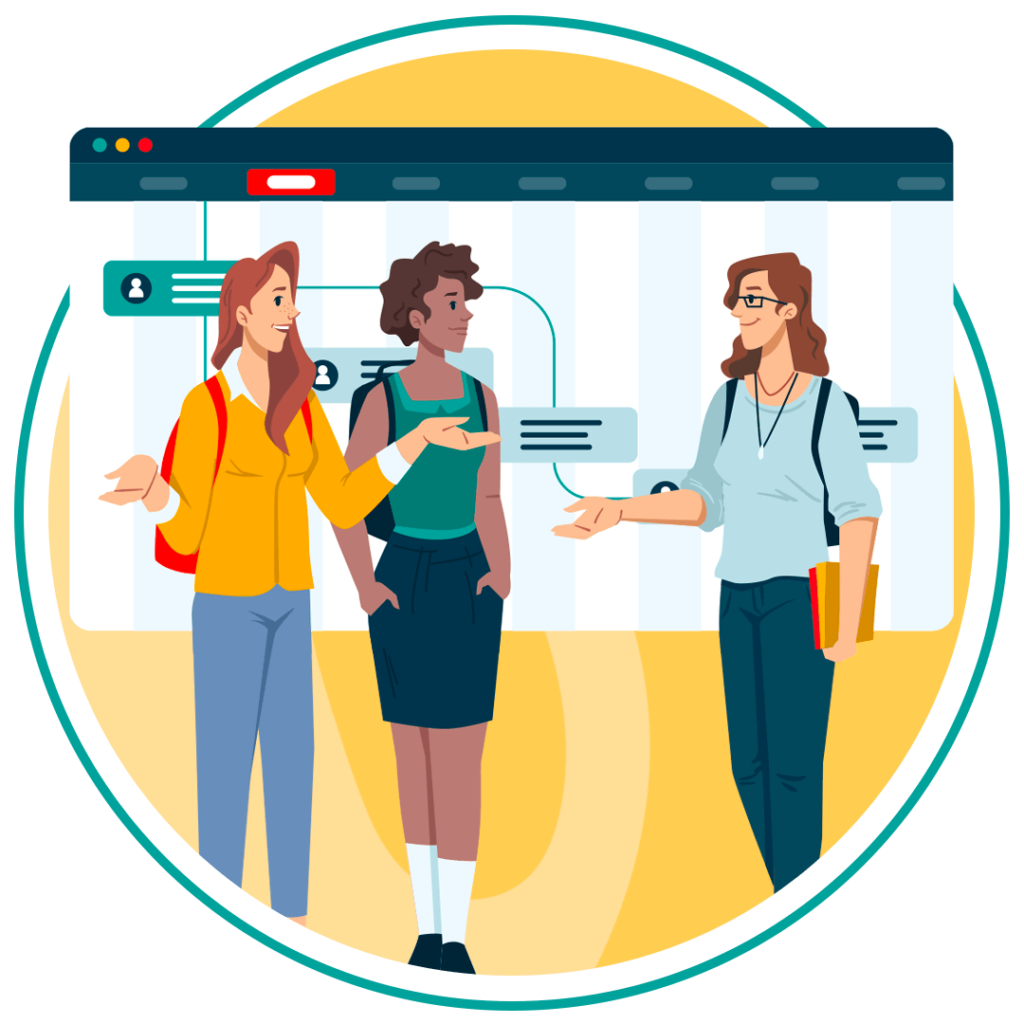
The word ‘reasonable’ in ‘reasonable adjustment’ is important. It suggests that adjustments must be practical and achievable according to the resources available to the institution in question. Ultimately, the aim is to ensure everyone has equal access to learning without offering an unfair advantage to anyone.
Download our Accessibility Education Guide
Download our inclusive education guide which looks at why digital barriers are a problem, who needs support, the importance of inclusive education, Recite Me clients, and an overview of our data from the past year.Examples of reasonable adjustments to make for dyslexic students
Providing reasonable adjustments is not about lowering academic standards, it’s about tearing down barriers to participation and providing dyslexic students the tools they need to perform at their best. But how does that work in reality? Let’s explore some practical ways educators can adjust their institutions to help dyslexic students overcome barriers to learning.
Using dyslexia-friendly fonts
Fonts styles have a significant impact on readability, particularly for individuals with dyslexia. The shape of letters and the way in which they are presented can make them far more legible or far less legible, depending on the font type. Certain fonts like Arial, Verdana, or OpenDyslexic are easier fonts for dyslexic individuals to read because they have clearer letterforms and spacing.
If fonts are too difficult to read, students end up focussing all their time and energy on trying to decipher words rather than engage with the content itself. This leads to frustration, causing students to get distracted and abandon their learning efforts.
Audio versions of texts or screen reader compatible materials
For dyslexic students, reading long texts can be time-consuming and exhausting. Providing audio versions of textbooks, or ensuring digital content is compatible with assistive technology, allows users to still to engage with material effectively.
Often, students with dyslexia find it difficult to keep up with taking notes during a live lecture. So, by offering recorded lectures, these students can revisit the material multiple times at their own pace, taking notes without time constraint.
You should also ensure that things like digital libraries are compatible with screen readers, allowing dyslexic students to access materials, such as research papers and journals, in order to complete their assignments.
It’s important to remember that offering multiple ways to consume content doesn’t just benefit dyslexic students, it can be a game-changer for all learners.

Background colour adjustments
Have you ever noticed how some colours are easier on the eyes than others? For dyslexic students, high-contrast colours, like black text on white paper, can cause visual stress. Adjusting the background colour of reading materials ever so slightly, such as using a soft pastel instead of bright white, can make a significant improvement.
To help alleviate visual stress for these students, you should offer customisation options where possible. Consider using an online accessibility software, like Recite Me’s assistive toolbar, which allows users to customise your online content according to their specific requirements, including altering the colour scheme and font style.
Spell checkers and grammar aids
Dyslexic students often struggle with spelling and grammar, but technology can bridge the gap. Tools like Grammarly or built-in spell checkers can help students produce written work that better reflects their understanding and ideas. It also removes the anxiety associated with written assignments by providing an extra layer of support.
Think of grammar aids and spell checkers in the same way as asking your friend to review a professional email before sending. Providing these tools to your dyslexic students in an academic setting ensures that they are judged on their knowledge, rather than their ability to spell.
Provide additional time
Dyslexic students often take longer to read and write compared to their non-dyslexic peers. When faced with strict time restrictions for exams, this may unfortunately translate to poor results, despite the student having the technical knowledge to prove otherwise.
The best reasonable adjustment you can make to accommodate this is to allow extra time during exams. Schools or universities can provide an extra 25% to 50% of the standard exam duration to alleviate a bit of pressure, allowing students to focus on demonstrating their academic prowess rather than worrying about racing against the clock.
Clear and consistent formatting
Consistency in formatting helps reduce cognitive overload for dyslexic students. This means using the same font sizes, headings, and layout structures across all materials, allowing students to anticipate content, read faster, and navigate easier.
Learning institutions should ensure that all exam papers, handouts, and study guides follow a clear and consistent layout. This includes using uniform headings, bullet points, and spacing throughout the documents to make them easier to navigate. For instance, questions on an exam should be clearly numbered with adequate space between them, reducing confusion for everyone, but especially dyslexic students.
Use of Visual Aids and Diagrams
For dyslexic students, processing large blocks of text can be overwhelming. Visual aids, such as diagrams, flowcharts, and infographics, can help break down complex ideas into more digestible parts. They support students in grasping concepts quickly and retaining information through visual association.
For example, a diagram explaining the steps of a scientific process or a visual timeline for historical events allows dyslexic students to access content without relying solely on reading.
Educators can also encourage the use of mind mapping tools, which can aid students in structuring their thoughts and connecting ideas visually, making learning more intuitive and engaging.
Our 40-page Digital Accessibility & Inclusion Toolkit helps businesses break down online barriers and make a real impact. It offers practical advice on all aspects of digital accessibility, from writing an accessibility statement to accessible website tips and inclusive hiring.
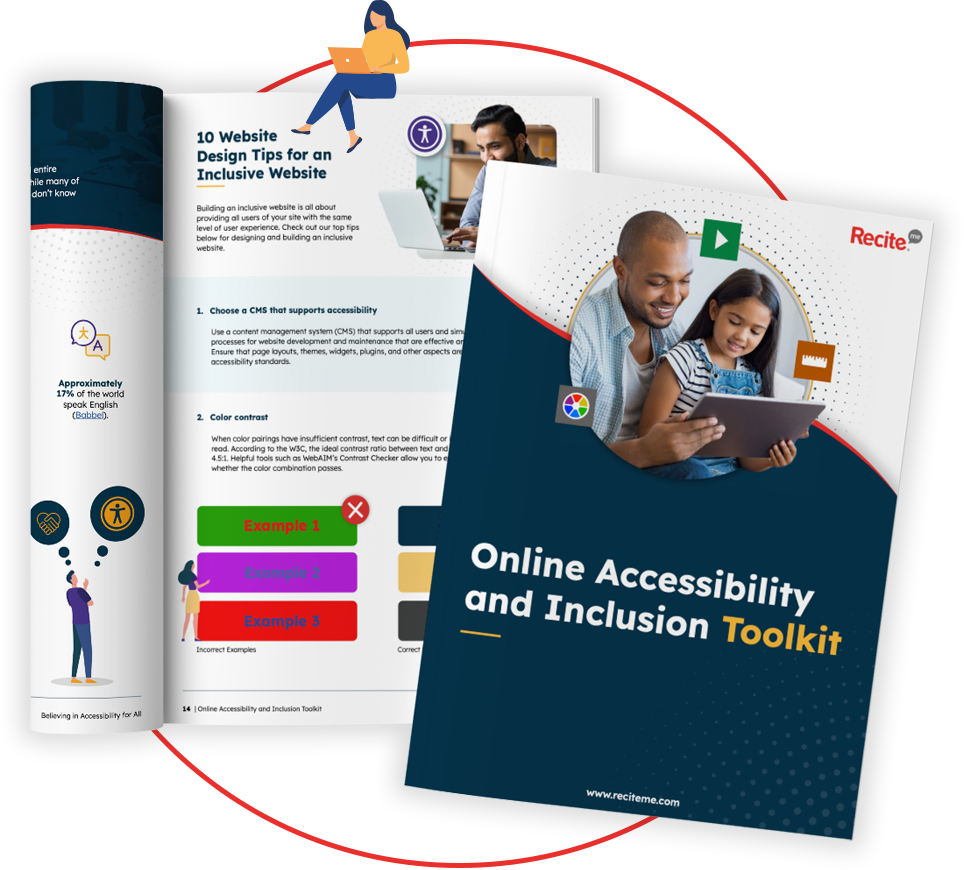
Benefits of providing the necessary adjustments for students with dyslexia
It’s easy to think of adjustments as extra effort, but in reality, these small changes can lead to big rewards for your organisation and your students. Not only that, but by making reasonable adjustments, you’re involved in something bigger, contributing towards a fairer, more inclusive learning culture for students everywhere.
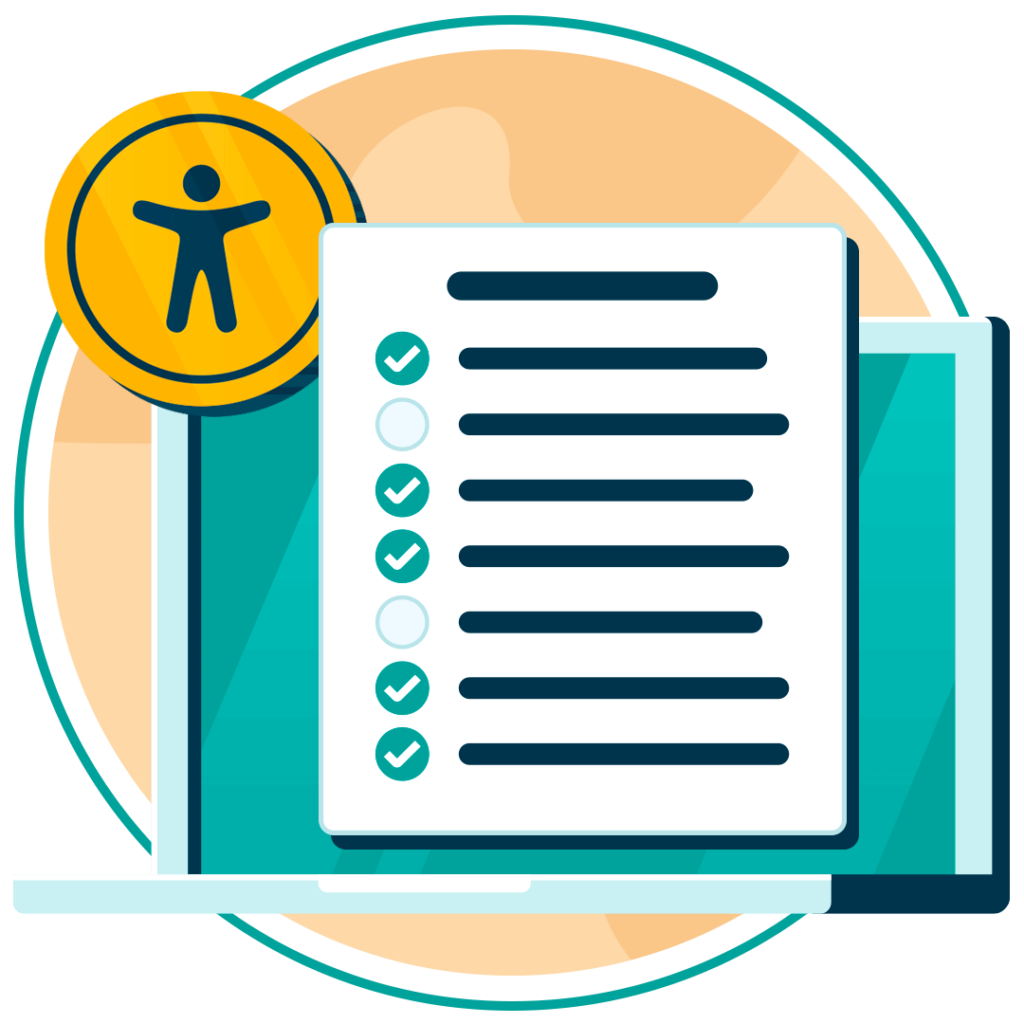
Here are some key benefits of making reasonable adjustments:
- Increased confidence: When students feel supported, they are more likely to engage in learning, leading to higher self-esteem and better academic performance.
- Better academic outcomes: With fewer barriers to learning, dyslexic students can demonstrate their true capabilities, often leading to improved grades and learning outcomes.
- A more inclusive environment: Adjustments for dyslexic students benefit the whole classroom. For example, clearer formatting and alternative learning materials can help all students, not just those with dyslexia.
- Improved teacher-student relationships: When teachers understand and accommodate learning differences, they build stronger, more positive relationships with their students.
- Preparation for the workplace: Providing adjustments in education helps dyslexic students develop strategies for success in future workplaces, where similar adjustments may also be beneficial.
How can Recite Me help?
When it comes to making reasonable adjustments for students with dyslexia, online tools can relieve some serious pressure. This is where Recite Me comes in. Here at Recite Me, we provide accessibility tools which support organisations from around the world on their journey to becoming more inclusive.
The two main tools you should be concerned with when making reasonable adjustments for students with dyslexia are: the assistive toolbar and accessibility checker. Let’s take a closer look.
Assistive Toolbar
Any educational institute, whether it be schools, colleges, or universities, can integrate Recite Me’s assistive toolbar into their website. Once integrated, the toolbar offers website users a range of different customisation functions, among other things.
Some of the toolbar’s main features include:
- Personalise font size, colour and type.
- Screen Mask & Ruler tools for reading.
- Download written content as an audio file.
- Text-to-speech.
- Translation to over 100 languages.
- Customising PDF documents.

In terms of making reasonable adjustments, the assistive toolbar empowers dyslexic students to change font styles as they see fit, alter background colours to reduce visual stress, or even have important web content read aloud to them through text-to-speech software.
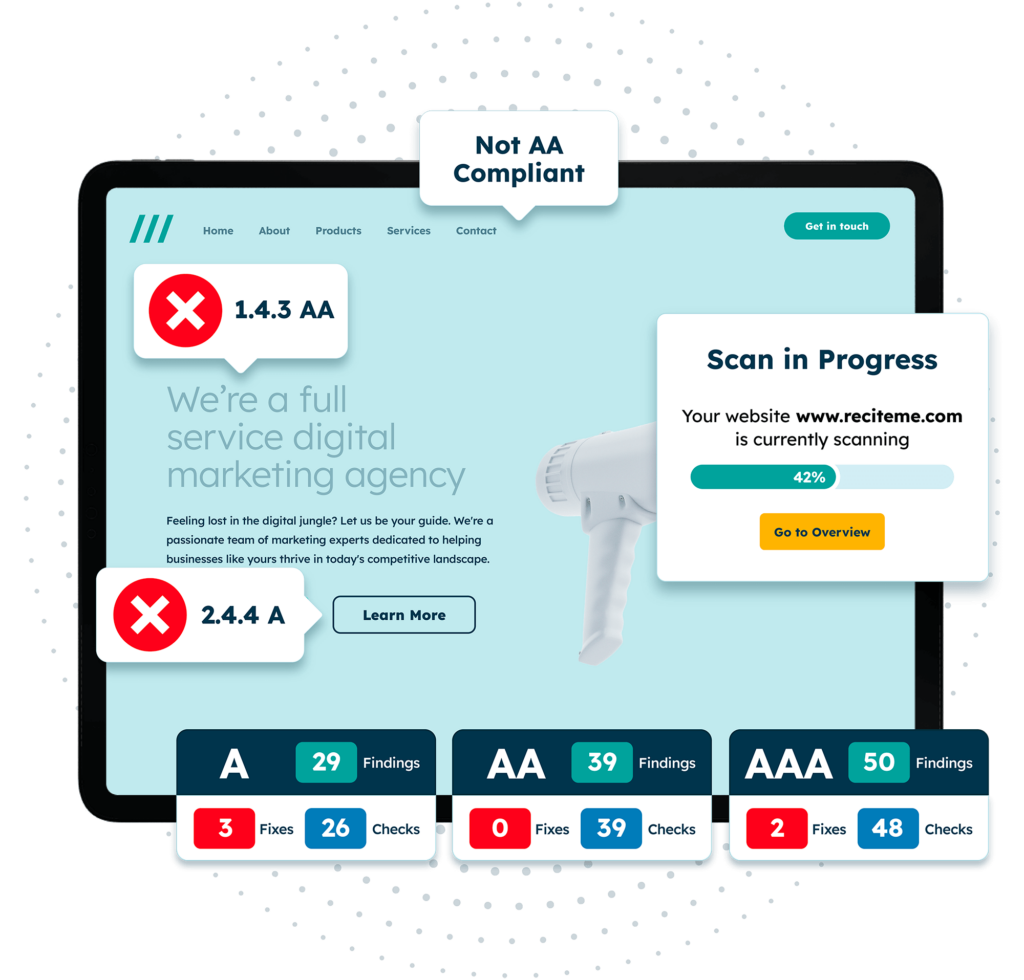
Accessibility Checker
It’s all well and good making reasonable adjustments for dyslexic students, but that does not necessarily mean your digital content is fully accessible. Our accessibility checker conducts an audit of your website, scanning it for any non-compliant or inaccessible features, organising the results into an actionable list with recommendations to help you resolve any issues. The accessibility checker compliments the assistive toolbar and should be implemented alongside it.
The checker adheres to the following process:
- Step 1: Scan Your Domains
- Step 2: Identify Accessibility Issues
- Step 3: Fix Accessibility Errors
- Step 4: Track Your Progress
- Step 5: Download & Share and Accessibility Report

